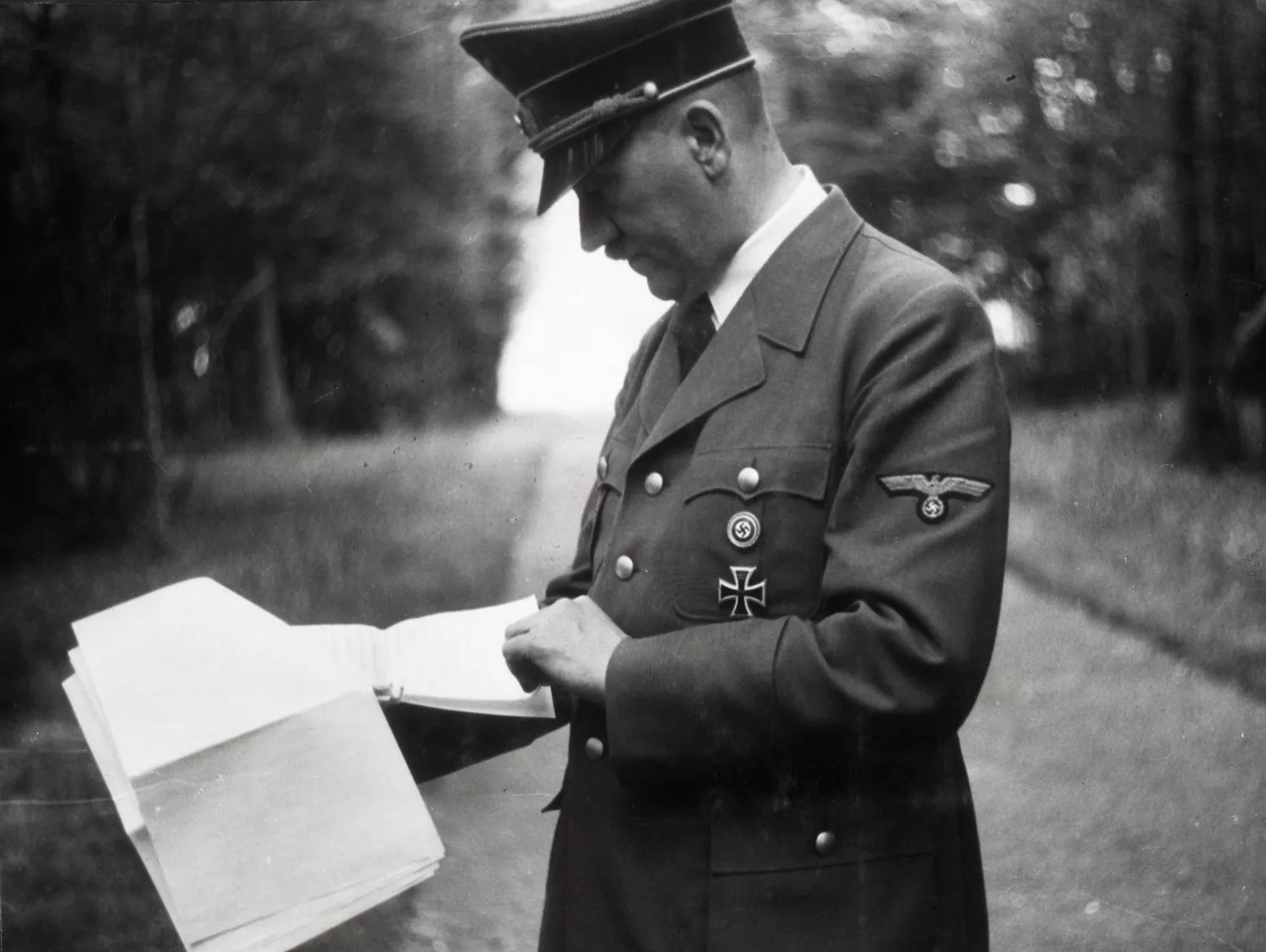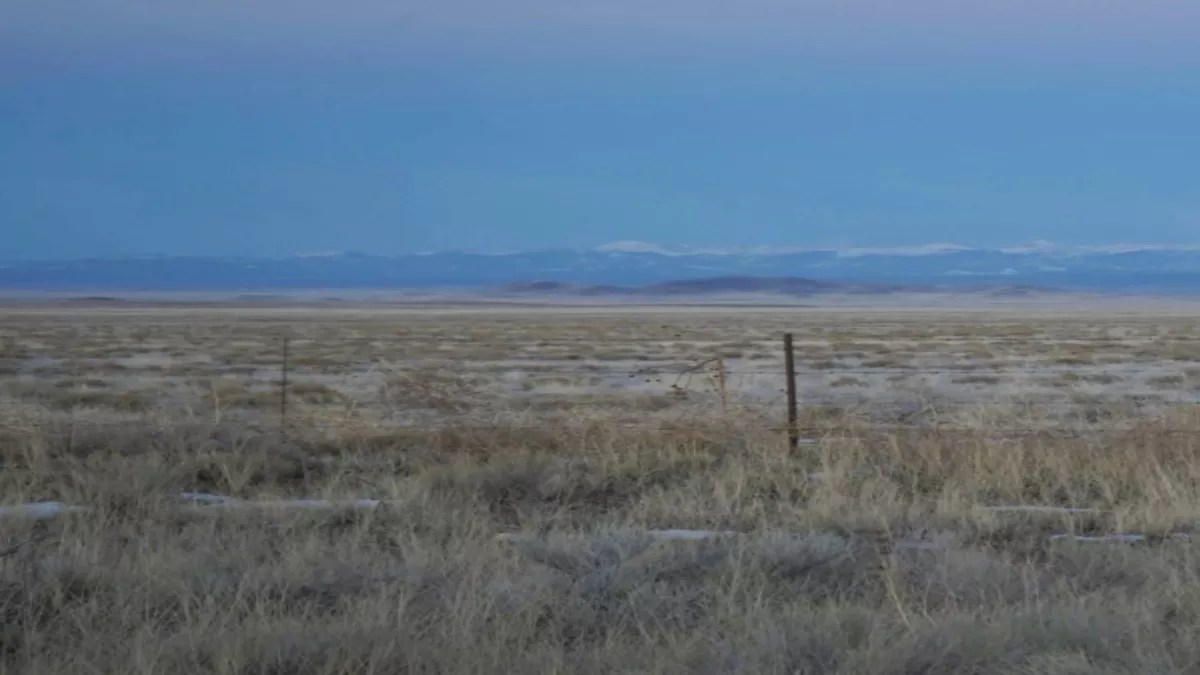
Image by Hugues Mathers on Unsplash

Audio By Carbonatix
Q: “What maniacal leader owned 8,960 acres of Colorado land in the 1930s but never lived to see it?”
A: “Adolf Hitler.”
So reads a clue in the history category of Trivial Pursuit’s “Know-It-All” edition. But the answer raises several fundamental questions that can be summarized in a single word that begs for italics.
Really?
Our attempt to figure out if this claim has a basis in reality or is simply a bizarre and hilarious urban myth that’s somehow persisted for decades turned into a weeks-long battle between fact and fiction. We’ll leave it to you to determine the winner – but here’s what we discovered.
The Colorado Historic Newspapers website contains what appears to be the first reference to Hitler’s alleged slice of Colorado – an article from the Oak Creek Times published on June 27, 1940, more than a year before America’s entry into World War II, and headlined, “Adolf Hitler Owns Fifteen Sections of Land in Colorado.” Oak Creek is a small community in Routt County, located in northwestern Colorado, while Kit Carson is in Cheyenne County, in the middle of the eastern portion of the state along the Kansas border.
The byline-free brief reads: “Hitler is the owner of fifteen sections of land in the vicinity of Kit Carson, Colorado. You can believe this or not, but that is what the records show. The land was owned at one time by a stockman by the name of Bowers. After his death heirs in Germany who had a lien on Bower’s holdings in the United States for $80,000 came in possession of the land and the German Reichstag finally took it over. The German counsel in Denver handled the land interests originally owned by Bowers. The holdings consist of ten sections in Township ten, Range forty-seven, and five sections in Township ten, Range forty-eight, which is in the Arena district just east of Kit Carson. For many years Bowers owned many farms in Illinois and was engaged extensively in the cattle business: The fifteen sections are used by two stockmen for pasture and it is not likely that the man who is raising so much hell across the waters will ever come over here to use these several square miles as a landing place for his bombing machines.”
This assertion seems to have lain fallow until 1975, when a variation on it took root thanks to The People’s Almanac. That project was assembled by popular novelist Irving Wallace, author of potboilers such as The Prize and The Man, and his son, David Wallechinsky, with the goal of livening up the staid almanac format by focusing on true stories that tended to be overlooked by more serious and scholarly tomes.
The Colorado-related passage can be found in a chapter labeled “U.S.A. – Red, White & True” (subtitle: What do you know about the U.S.?”), which is set up in a quiz format. Question 26 asks, “In what state did Adolf Hitler once own 8,960 acres of land?” The answer provided reads, “In 1942, it was discovered that the German Fuhrer, Adolf Hitler, then at war with the U.S., actually owned 8,960 acres of valuable land in Colorado. The Mayor of Kit Carson, Colo., revealed that Hitler had inherited the grazing land from relatives in Germany. The spread, 4 mi. from the small city of Kit Carson, was used by neighboring ranchers for grazing cattle.”

In 1940, a Colorado newspaper reported that Adolf Hitler owned land in the state.
National Archives
The reason this information caused a stir had everything to do with The People’s Almanac‘s popularity. The book wasn’t just a bestseller: It was a pop-cultural phenomenon so sweeping that it spawned two sequels and helped spark a rising interest in ephemera as entertainment. (Note that the Trivial Pursuit game debuted in 1981, the same year the Almanac’s third volume was published.)
The idea of Hitler as a Colorado landowner was such a grabby tidbit that no less a publication than the Los Angeles Times decided to investigate it. “Did Hitler Own Land in the U.S.?,” credited to reporter Steve Harvey, uses as its main source Joyce Escudero, co-publisher of The Range Ledger, a newspaper in Cheyenne Wells, the Cheyenne County seat, who said that she had found no evidence that Hitler owned land in Colorado and traced what she characterized as a “rumor” to a court action taken by a Virginia man named Steve Havely circa 1940.
Havely is said to have owned $23 million worth of long-overdue German bonds, and after learning that a man from Richhausen, Germany, owned 13,000 acres of Colorado land, he asked a court to give him some of this spread as partial reparation. His request was rejected and the land was subsequently seized by the “Alien Property Custodian’s office” and resold, Harvey wrote. In January 1976, Escudero’s paper speculated that Havely’s complaint may have mentioned that the property was owned by “citizens of Adolf Hitler’s Reich,” prompting a courthouse worker to shorten the attribution to Hitler alone.
This theory didn’t shake Wallace and Wallechinsky. The Times revealed that “they are sticking by their version.”
Their version certainly stuck around. In the 2006 book Colorado Curiosities, author Pam Grout included a blurb that expanded on the Almanac tale: “When Hitler became the chancellor of Germany, he confiscated a $20,000 mortgage note from a German family, most likely Jewish, that had inherited the Colorado ranch from a relative in the U.S. After the United States declared war on Germany, the government reclaimed his Kit Carson ranch and eventually sold it to a man from New Mexico. But if you look in the abstract listings in Cheyenne County, you’ll see the German fuhrer’s name.”
“That very well may be true,” opined Will Holden in “Haunted Colorado Mysteries,” shared by Fox31 in 2014.

An image from the Cheyenne County, Colorado website.
Is it? In response to Westword‘s inquiry about the supposed Hitler connection, Cheyenne County clerk and recorder Allison Brown provided a copy of the original Range Ledger piece, which contains much more detail than Harvey’s L.A. Times item. A key paragraph points out: “A quick trip through the records of the Cheyenne County Abstract Co., with the gracious help of Jack Larsen, put the Hitler myth to rest.”
Brown added a fun fact: The person who runs the Cheyenne County Abstract Co. today is Dave Larsen, Jack Larsen’s son. However, the younger Larsen is on vacation out of the country and isn’t due to return until mid-June.
All of the accumulated info is enough to persuade Luke Perkins, spokesperson for the History Colorado Center, that his institution needn’t put up a display portraying a certain Nazi as an absentee Colorado landlord. In his words, “It definitely seems like this is a situation where the rumor is a conflation of the German government and Adolf Hitler himself.”
That should be the final word on the subject. But it’s damned hard to make a story this good go away – even if you think you’re a know-it-all.